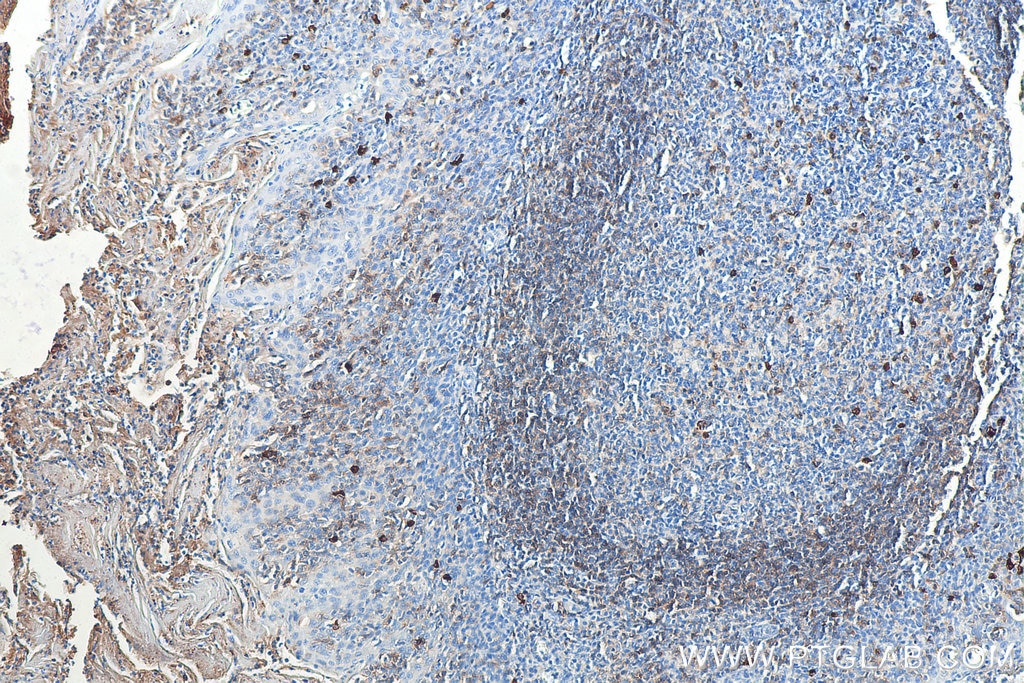Tested Applications
| Positive IHC detected in | human tonsillitis tissue Note: suggested antigen retrieval with TE buffer pH 9.0; (*) Alternatively, antigen retrieval may be performed with citrate buffer pH 6.0 |
Recommended dilution
| Application | Dilution |
|---|---|
| Immunohistochemistry (IHC) | IHC : 1:50-1:500 |
| It is recommended that this reagent should be titrated in each testing system to obtain optimal results. | |
| Sample-dependent, Check data in validation data gallery. | |
Product Information
Biotin-67538 targets human IgD in IHC applications and shows reactivity with Human samples.
| Tested Reactivity | Human |
| Host / Isotype | Mouse / IgG2a |
| Class | Monoclonal |
| Type | Antibody |
| Immunogen | human IgD fusion protein Ag9614 Predict reactive species |
| Full Name | immunoglobulin heavy constant delta |
| Calculated Molecular Weight | 573 aa, 63 kDa |
| Observed Molecular Weight | 55-70 kDa |
| GenBank Accession Number | BC021276 |
| Gene Symbol | IGHD |
| Gene ID (NCBI) | 3495 |
| RRID | AB_2918950 |
| Conjugate | Biotin |
| Form | Liquid |
| Purification Method | Protein A purification |
| Storage Buffer | PBS with 50% glycerol, 0.05% Proclin300, 0.5% BSA, pH 7.3. |
| Storage Conditions | Store at -20°C. Avoid exposure to light. Stable for one year after shipment. Aliquoting is unnecessary for -20oC storage. |
Background Information
IgD is the major antigen receptor isotype on the surface of most peripheral B-cells. The function of IgD is to signal the B cells to be activated. The relative molecular mass and half-life of secreted IgD is 185 kDa and 2.8 days, respectively. Secreted IgD is produced as a monomeric antibody with two heavy chains of the delta (δ) class, and two Ig light chains. This antibody detects the heavy chain (55-70 kDa) of IgD and secreted IgD (185 kDa) .
Protocols
| Product Specific Protocols | |
|---|---|
| IHC protocol for Biotin human IgD antibody Biotin-67538 | Download protocol |
| Standard Protocols | |
|---|---|
| Click here to view our Standard Protocols |



